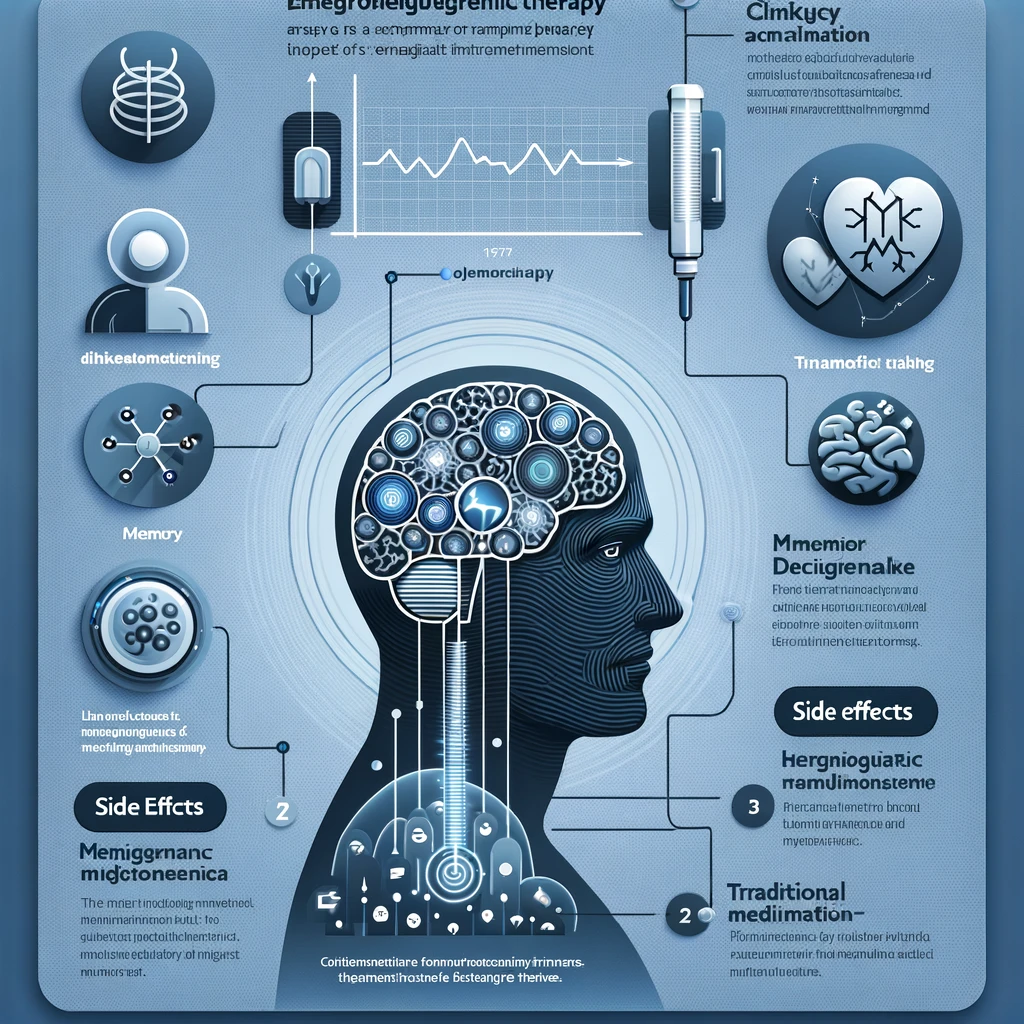Electromagnetic Therapy: A Leap into the Future of Alzheimer’s Treatment

Understanding the Technology
Electromagnetic therapy utilizes magnetic fields to stimulate specific areas of the brain, a technique that has shown promise in treating conditions like depression. This method is now being adapted to address more complex diseases, such as Alzheimer’s. The technology operates on the principle that magnetic fields can influence neuronal activity, potentially slowing, halting, or even reversing the cognitive decline typical of Alzheimer’s.
Advantages Over Traditional Medication
Conventional Alzheimer’s medications, such as Donepezil and Memantine, often come with a host of side effects and provide limited efficacy in slowing disease progression. In contrast, electromagnetic therapy offers a non-invasive alternative that reduces these side effects. Early clinical trials suggest improvements in cognitive functions, such as memory and decision-making, indicating a higher efficacy than current pharmaceutical options.
The Road to Regulatory Approval and Market Impact
Clinical Trials and Innovations
ReMed is currently conducting trials with its “BrainStem” device, aimed at validating the effectiveness and safety of this new technology. Initial results are promising, with treated patients showing notable improvement in cognitive assessments compared to those receiving placebo treatments.
Future Market Transformation
With plans to seek regulatory approval within the next three years, ReMed is poised to revolutionize the Alzheimer’s treatment market. This shift could significantly affect pharmaceutical companies, potentially disrupting the current market dominated by chemical drugs.
Broader Applications and Societal Impact

Expanding Therapeutic Uses
The potential applications of electromagnetic therapy extend beyond Alzheimer’s. ReMed is exploring its efficacy in treating conditions like stroke rehabilitation and chronic pain, broadening the scope of this technology in the medical field.
Economic and Social Considerations
As treatments like ReMed’s electromagnetic therapy become more widespread, they could lead to substantial healthcare savings by reducing the need for expensive medications and long-term care. Additionally, improving the quality of life for Alzheimer’s patients can have profound social implications, including reducing the emotional and financial burden on families and caregivers.
Conclusion
The development of electromagnetic therapy by companies like ReMed represents a significant advancement in Alzheimer’s disease management. By offering a drug-free, non-invasive treatment option, this technology not only promises to improve patient outcomes but also challenges the traditional pharmaceutical approaches to treating neurodegenerative disorders. As we move forward, it will be crucial to monitor the outcomes of ongoing clinical trials and the subsequent steps towards commercialization, which could potentially transform the medical landscape for Alzheimer’s and beyond.
Navigating the Tides of Global Webtoon Markets: Strategies and Insights from Kakao Piccoma
Hi, I’m [jeybee]. As a long-time resident of Seoul, I’m passionate about uncovering the authentic, everyday magic of Korea. This blog is my way of sharing my favorite spots, tips, and cultural insights with you, beyond the usual tourist traps.

